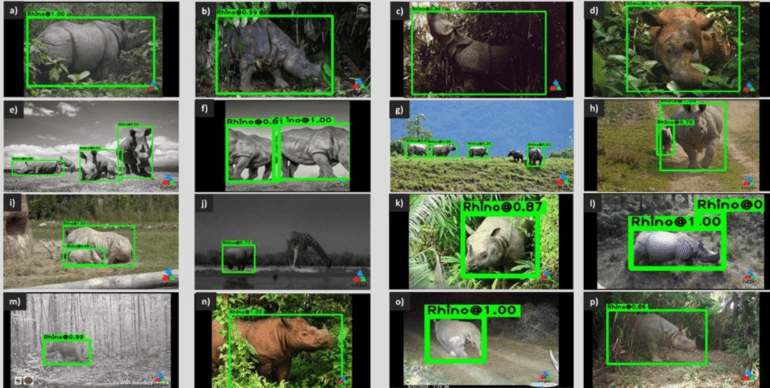TL;DR:
- AI’s significant impact on biodiversity conservation through image recognition and monitoring.
- AI-driven advancements in sustainable agriculture, including weed detection and precision farming.
- The role of AI analytics in addressing climate change and carbon emissions reduction.
- AI’s ability to simulate and predict ecosystem dynamics for proactive conservation.
- Microsoft’s “Planetary Computer” project for global-scale environmental monitoring.
- The transformative potential of AI in ecology projects for a sustainable future.
Main AI News:
Artificial Intelligence (AI) is not only revolutionizing industries like healthcare and finance but is also quietly making its mark in ecological initiatives, a topic often overshadowed. As our world grapples with the challenges of climate change, biodiversity loss, and resource scarcity, the integration of AI emerges as a pivotal force for transformative solutions.
AI’s Role in Biodiversity Conservation
One of AI’s remarkable capabilities lies in its ability to process vast datasets at unprecedented speeds. For instance, ChatGPT-4 can analyze data from multiple sources, including satellite images, weather data, and social media feeds. This technological prowess is particularly valuable in biodiversity conservation.
AI-powered image recognition and computer vision technologies offer a game-changing approach to wildlife monitoring. These innovations accurately identify species from photographs and videos, providing essential data for tracking and studying wildlife populations. A prime example is the “Wild Me” project, which utilizes photography and AI to identify individual wildlife, eliminating the need for physical tagging. This project sources imagery from camera traps, aerial surveys, social media, tourists, and citizen science.
Moreover, AI contributes significantly to anti-poaching efforts by detecting suspicious activities such as poaching and illegal logging. Swift identification and intervention safeguard vulnerable wildlife populations, bolstering global conservation initiatives.
AI’s Impact on Sustainable Agriculture
AI’s influence in agriculture is expanding, making farming practices more efficient and environmentally friendly. Take “WeedBot.eu,” an AI-driven laser weeding machine that outperforms manual weeding and herbicide treatments. Their collaboration with “ENOT.ai,” a neural network optimization tool, has greatly enhanced weed detection speed and precision.
Using ENOT technology, weed detection has been accelerated by 2.72 times, with the potential for a 25 percent accuracy improvement. These advancements showcase how AI can revolutionize agricultural practices, promoting resource management and ecological sustainability.
Addressing Climate Change with AI Analytics
AI-driven analytics play a pivotal role in monitoring and reducing carbon emissions in various industries. These tools are instrumental in combatting climate change.
AI for Ecological Research and Predictions
AI’s ability to simulate and predict ecosystem dynamics, thanks to its proficiency in handling large and complex datasets, provides invaluable insights into the impact of environmental changes on various species. This predictive power aids proactive conservation efforts, guiding decision-makers in a rapidly changing world.
AI models are also crucial in simulating and predicting climate change’s impact on ecosystems. These simulations offer crucial insights into ecosystem responses to shifting environmental conditions, informing proactive conservation and management strategies. Microsoft’s “Planetary Computer” project exemplifies this, harnessing vast data and spatial analysis tools for global-scale environmental monitoring.
Transforming the Future with AI
The integration of AI into ecological initiatives represents a transformative force in our quest for sustainable solutions. From biodiversity conservation to resource management and public engagement, AI equips us with a diverse toolkit to comprehensively address environmental challenges.
Emphasizing the need for ongoing research and innovation in AI for ecology is paramount as we strive to build a harmonious and sustainable future for future generations. While AI has made significant strides in various fields, the time is ripe for tech companies to intensify their efforts in developing and integrating AI into ecology projects, thereby addressing environmental issues and discovering smarter solutions more efficiently.
Conclusion:
AI’s potential as a powerful tool in the fight against environmental degradation cannot be overstated. It is poised to contribute significantly to environmental protection and sustainability through climate change modeling, energy efficiency, pollution monitoring, wildlife protection, eco-friendly agriculture, waste management, urban planning, and carbon footprint reduction. AI holds the key to creating a more sustainable and eco-friendly future.

